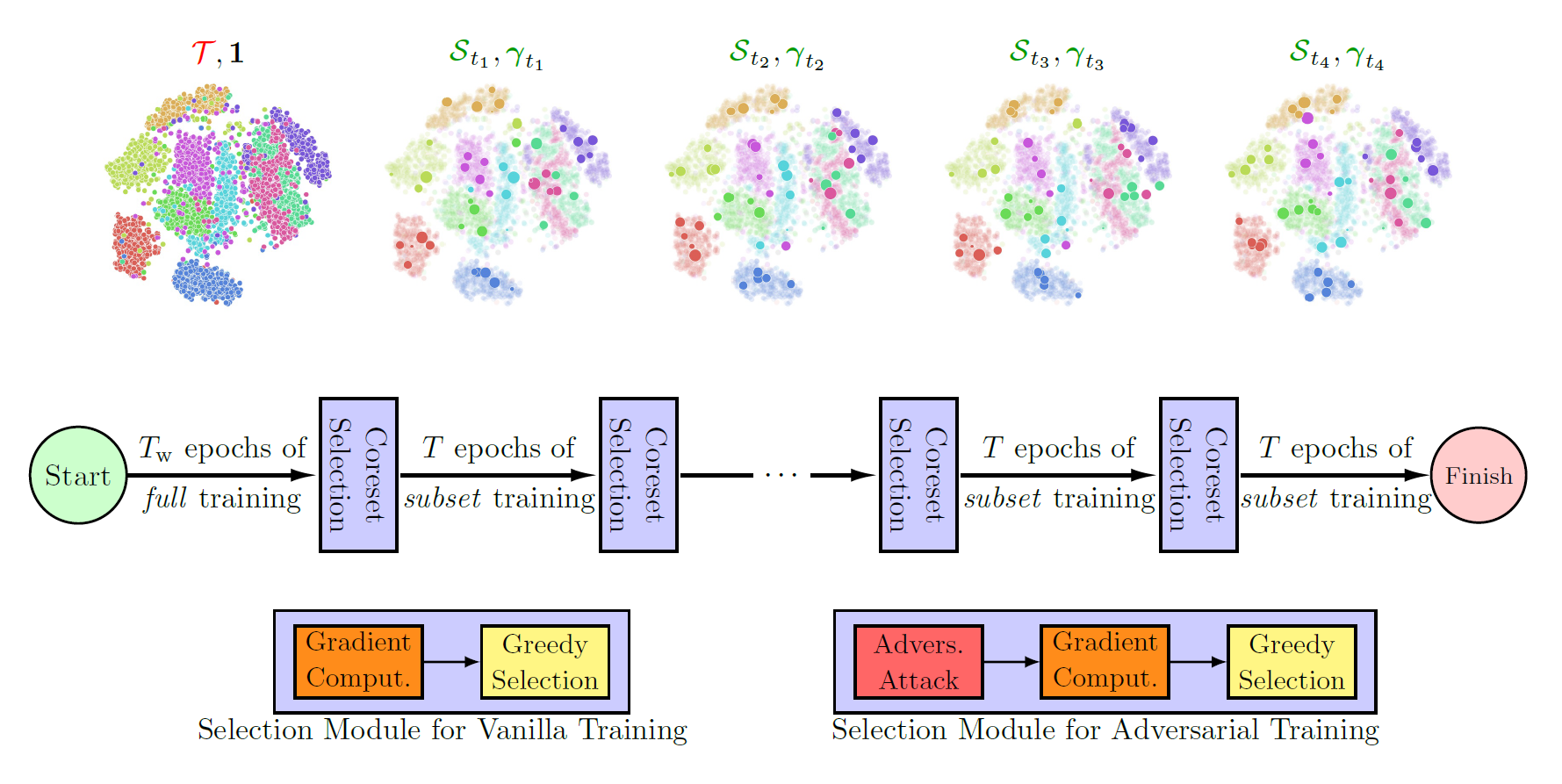Adversarial Coreset Selection for Efficient Robust Training
Neural networks are vulnerable to adversarial attacks: adding well-crafted, imperceptible perturbations to their input can modify their output. Adversarial training is one of the most effective approaches to training robust models against such attacks. Unfortunately, this method is much slower than vanilla training of neural networks since it needs to construct adversarial examples for the entire training data at every iteration. By leveraging the theory of coreset selection, we show how selecting a small subset of training data provides a principled approach to reducing the time complexity of robust training. To this end, we first provide convergence guarantees for adversarial coreset selection. In particular, we show that the convergence bound is directly related to how well our coresets can approximate the gradient computed over the entire training data. Motivated by our theoretical analysis, we propose using this gradient approximation error as our adversarial coreset selection objective to reduce the training set size effectively. Once built, we run adversarial training over this subset of the training data. Unlike existing methods, our approach can be adapted to a wide variety of training objectives, including TRADES, $\ell_p$-PGD, and Perceptual Adversarial Training. We conduct extensive experiments to demonstrate that our approach speeds up adversarial training by 2-3 times while experiencing a slight degradation in the clean and robust accuracy.
PDF Abstract

 CIFAR-10
CIFAR-10
 SVHN
SVHN